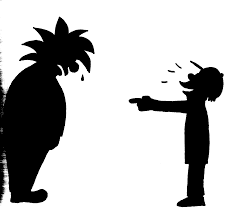
记忆方法
记忆单词“derision”的方法是将其分解为“de-ri-sion”。想象一个“de”字代表下落或下降,而“ri”联想到“cry”(哭),即大声嘲笑或哭泣,最后“-sion”表示行为或过程。因此,“derision”可以形象地记忆为“大笑至落泪”或“下落的嘲笑”,意味着公开嘲笑或嘲讽。
以上内容由AI生成, 仅供参考和借鉴
英语词源
- derision (n.)
- c. 1400, from Old French derision "derision, mockery" (13c.), from Latin derisionem (nominative derisio), noun of action from past participle stem of deridere "ridicule," from de- "down" (see de-) + ridere "to laugh."
权威例句
- 1. He tried to calm them, but was greeted with shouts of derision.
- 他试图让他们平静下来,但却招致他们大声的嘲笑。
- 2. Her speech was greeted with howls of derision.
- 她的演讲受到阵阵嘲笑。
- 3. Americans speak with derision of those who are lazy.
- 美国人总是带着嘲笑的口气谈论那些懒惰的人.
- 4. He gave a snort of derision.
- 他哼了一下鼻子表示嘲笑.
- 5. Children dread the derision of their playmates.
- 孩子们害怕受到同伴的嘲笑.